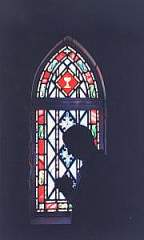 For all the handwringing about half-hearted evangelism and declining church attendance…
For all the handwringing about half-hearted evangelism and declining church attendance…
For all the lamentations about lack of community…
For all the conflicting PR about organic, emerging, institutional, house, simple, and traditional churches…
For all the grousing about spiritual gifts, cessationism, charismania, and talents…
And for all the preoccupation with politics, Kardashians, Dancing with the Stars winners/losers, sports fanaticism, the “right” schools, the future, the Consitutution, police states, ISIS, endless End Times “prophecies,” and every last minuscule thing that has precious little to do with being a Child of God…
I am increasingly concerned that Christians in America have no desire to be the Church. We just don’t.
We talk like we do, but it’s mostly talk.
I confess that this is true of me as well. I am not exempt. I talk big, but I struggle to find ways to make the things I talk about work. I think this is true of most people in America. Something must be done; now if someone would just do it…
It may also be true that the systems we have in place that make American Christianity what it is only complicate being a genuine Christian attempting to live as the genuine Church.
But Americans have a way of making the things they value most work and work well—which is why I wonder if we truly value being the Church.
Do we wake up and immediately ask God to make us the Church? Is that such a burning concern for us that we give it the priority it deserves?
It’s not that we don’t love God or Jesus or the Holy Spirit. It’s that we’re not so sure about people. The vertical still has value. The horizontal, not so much.
Let’s get real, though: If the horizontal isn’t there, is the vertical? Or are we fooling ourselves?
Then there are the endless battles…
For all the talk of trying to preserve the Church in America by taking on the culture and standing up for what is right, have we really preserved anything? Or did “fighting the good fight of Faith” lead us into the wrong battlefields, allowing our flanks to be decimated? Do we now find ourselves in a position where our soldiers are walking away and going back to their homes, weary and looking for something, anything, to distract them from realities they can no longer face because their wingmen went home too?
How many people out there are asking if they can do this anymore? How many have already decided they can’t?
Does anyone care?
Maybe this post is too grim. Maybe it’s not grim enough.
As for me, I think some people still care. I just don’t know if they have enough momentum to steer anyone else their way. Maybe the final outcome was always the remnant, and this is what it looks like.
I admit that I don’t have any answers beyond what I’ve posted here already on Cerulean Sanctum.
It just seems to me that somewhere we went off the rails, and instead of working to rectify the situation, we wandered off, distracted. Maybe this is the “powerful delusion” the Bible speaks of. Maybe we Americans who profess to know the Lord are falling under its spell too.
Maybe I’m wrong. Maybe it’s not as dire as I think it may be. God knows I want to be wrong on this issue.
Do we Americans really care about being the Church? If we still do, how do we prove it?
Maybe you have an answer. If so, please comment.

 The fashion today finds some churches talking smack about how long the worship portion of their Sunday meeting persists.
The fashion today finds some churches talking smack about how long the worship portion of their Sunday meeting persists.